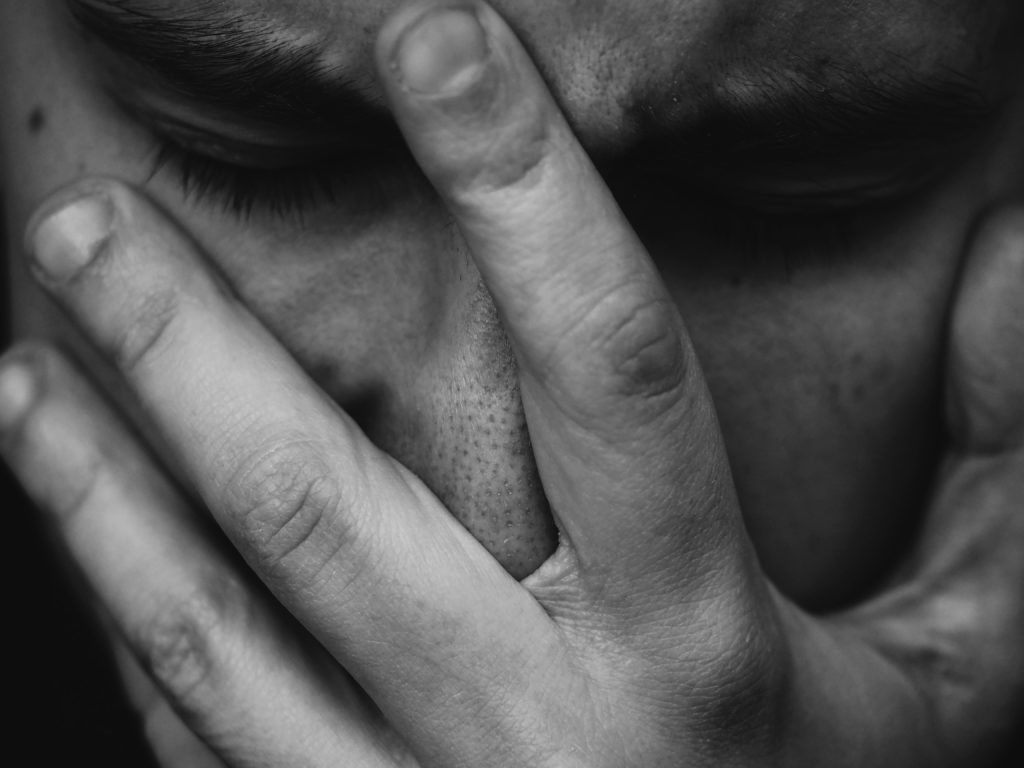
Grief can show up as detachment from the outside world, not knowing what to do daily, feeling numb, feelings of depression and anger and sleep disorders are linked with the grief process.
In its simplest form our grief is not here to hurt us, it’s just another thought, that creates a feeling that produces some sort of action in your body. Grief is messy and there are no hard and fast ways to ‘fix’ things.
Just on that note, you are not broken when you are experiencing grief.
Sleepless nights are no joke as they affect every single part of our daily lives, not to mention the impact on the people around us. During the daytime it is easier to distract our minds with ‘doing’ stuff but in the stillness of the night our minds are free to race, and it becomes harder to disconnect from our worries. Suddenly our regular sleep pattern is disrupted, and our mind and body eventually become so fatigued that our well-being begins to suffer.
With over eighty-eight sleep disorders it can be hard to know what kind of sleep issue you have. Sleep disorders may cause you to have trouble falling asleep or difficulty in getting back over to sleep. Maybe you have troubled dreams or light sleep and wake up feeling exhausted.
Everything you are going through is completely normal.
Grief can be the result of a job loss, relationship breakdown, losing your home, the realization that the life you lead is not the one you had planned, watching the decline of elderly relatives or the sad loss of a loved one.
For many of us there is the tendency to bottle things up
When we boil it all down our grief is looking for a way to be expressed. When you begin to make some ‘space’ in your life for this to happen you will notice changes in how you feel.
‘’Expression is the opposite of depression’’
Dr Edith Eger, Psychologist and Holocaust Survivor
We lock up our feelings, planning to examine them on a different day that never comes. As we try to think our way out of grief, we begin to feel more stuck and out of control, maybe even frozen. Keeping our feelings at bay is mentally and physically exhausting.
Grief is rooted in the fear that if we open our feelings, we may not come out of them, or we will be wiped out. In her book, The Choice, Dr Edith Eger reminds us that even in the worst of times there is hope.
The only lasting way to overcome grief is to walk right through the middle of it and, step by step, deal with what comes up in the most compassionate way that you can.
It is very difficult for friends and people around you to say the right thing when you are struggling with these feelings of grief. The tendency is to say things like ‘I remember when my grandmother/ uncle / mother passed’ when all you really want is space to just ‘be’ with them. Something like ‘I can’t understand what you are going through right now, but I am here for you’ is more supportive and loving.
Understand as well, the different parts of the grieving process. Before you go ‘out of your mind’ with worry check out Cruse Bereavements’ article on the The Five Stages Of Grief which is excellent at mapping out the road ahead if you have lost a loved one, but also if you are grieving for other reasons.
Concluding Insights on Sleep Disorders and their relationship with Grief
Wouldn’t it be great if could say that neither you nor your family will ever have to experience grief?
For most of us the reality is different.
There will be times when grieving is inevitable. Understanding that ‘grief is love with nowhere to go’ is the first step on your road to recovery. There are no quick fixes but there are different ways to cope, and you may have to keep working at it for a period. We all have an in-built survival mechanism that gets us through the tough times, just remember to be compassionate and give yourself time and space to let this work.
How Grief affected me
For Anna…..
After my mum passed, I had this overwhelming feeling of acceptance that this day would come ,sometime. It didn’t make me feel better and I was devastated for a long time, I had lost my best friend.
In those early days the only way I could cope was to go onto autopilot, get things done by sorting out all the practical stuff. Everything was surreal then. I could hear myself and others talking but it sounded as if I was at the deep end of the swimming pool. Despite all the love and support from those around me I felt so alone with this sorrow I was carrying.
During the daytime I could manage but the thought of going to bed began to scare me. I was always able to fall asleep quickly and sleep almost through to getting-up time. Now, when I went to bed my heart began to race and I felt panicky. Two, three, four hours would pass by in this state of terror. Finally, around 3-4am I would be so exhausted that I would fall asleep until about 7am. Copy and paste that to the next day and the day after that. Waking up was a relief from the fear I was experiencing, and I would be so happy to get up and begin another day.
But there was only so much mental and physical exhaustion my body could take. I began to try different over-the-counter remedies, different pillows, different bedtimes but nothing worked for me.
It took me a while to find the right combination of techniques that helped restore my sleep pattern to something more tolerable.
To this day there is a part of me that dreads going to sleep and another part that is delighted to see morning arrive.
Maybe you never do cure a deep-seated trauma, but you can learn to live with it.
In our Foundation Course here at Generation Well, we have a whole module dedicated to Sleep Management. We will be launching it shortly. Click here to keep informed or e-mail me at hello@generationwellbeing.com
To keep up to date with all of my news, insights and updates, please follow me on LinkedIn.
Sleep Disorders: How Does Grief Affect Sleep? | Generation Well 2024



